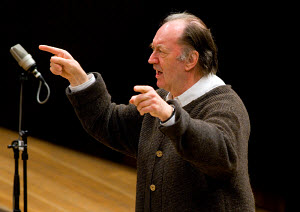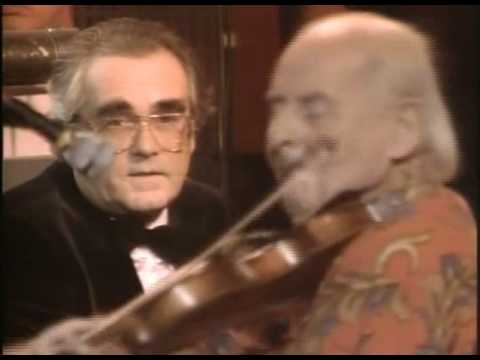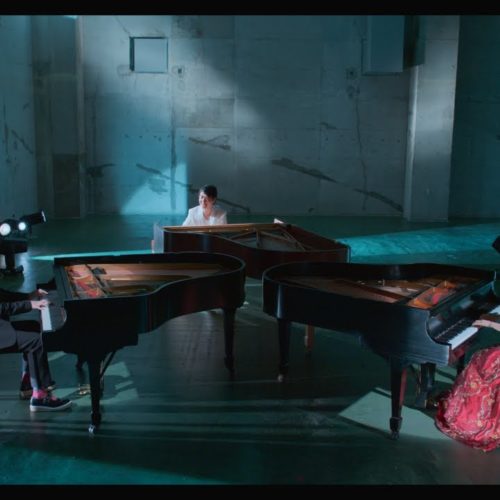Welcome to the 96th work in the Slipped Disc/Idagio Beethoven Edition
Beethoven: Missa solemnis in D major, Op. 123 (part 2)
The early music movement started up in the 1950s with a bifurcated mission – to explore European music before Bach and to perform the works of Bach and his successors in the style and on the instruments of their time. In the 1950s and 1960s, the movement – which adopted the tags ‘period-practice’ and ‘historically aware’ – concentrated on music from Monteverdi to Mozart. Once Beethoven cropped up, there were splits and feuds and the record industry saw a pecuniary opportunity in reselling Beethoven in a distinctly different sound.
Christopher Hogwood, an English harpsichordist who broke away from Neville Marriner’s Academy of St Martin-in-the-Fields over differences in tempo and interpretation, persuaded Decca to back a Beethoven symphonic cycle. The results were loudly acclaimed in UK record magazines and sold mountains. Hogwood was not, however, the first of his kind. The Hanover Band, led by violinist Monica Huggett on the bucolic Nimbus label, performed Beethoven symphonies with as few as 29 players, and the German Collegium Aureum with no named leader managed on fewer still. I remember agreeing with a survey by John Rockwell in the New York Times which concluded that the Hanovers sounded most convincing of the three. Despite this Hogwood outsold the rest until, by the end of the 1980s he was challenged by serious rivals, at home and abroad.
Nikolaus Harnoncourt, who started out as a cellist in the Vienna Symphony Orchestra under Herbert von Karajan, pursued a particular synthesis of period practice and modern sound with his period-instrument Concentus Musicus Wien. he also worked with the Chamber Orchestra of Europe, which used modern instruments in a smaller formation. Recordings with each of them allowed Harnoncourt to have his historic cake and eat it, with added sugar. He was not the most elegant of conductors but players responded to the depths of his research and to his considerable charm. Karajan, Harnoncourt told me, was outraged at his success.
The 1990s yielded John Eliot Gardiner, with a self-made ensemble, roughshod rhythms and some questionable historical theories and Roger Norrington, who thought long and hard about what degree of authenticiy might actually please a modern audience. Others in contention were Helmut Rilling, Philippe Herrweghe, Emanuel Krivine, Jos Van Immerseel and Frans Brüggen.
Very few of the period-instrument Beethoven symphonic recordings withstand comparison to the performances by traditional maestros in the Toscanini, Furtwängler, Kleiber and Karajan mould. But that’s just the symphonies. Old-style maestros were more wary of the Missa Solemnis. Furtwängler never performed (or recorded) it after 1930 and Toscanini steered clear of it until he was in his sixties. It may well be that the Missa Solemnis lends itself more readily than the symphonies to smaller forces, quicker speeds and lighter voices.
Gardiner, who recorded it twice – in 1989 and 2012 – generates tremendous excitement and an almost pagan spirituality. His soloists – Charlotte Margiono, Catherine Robbin, William Kendall, Alastair Miles – are not uniformly top-drawer and the quietude of the Agnus Dei goes missing in a rush for effect. Gardiner’s second shot, taken from a live concert at London’s Barbican Hall in October 2012 – has more of an Anglican atmosphere than Roman Catholic, but Gardiner delights in provocation and listeners much form their own opinion.
Helmut Rilling, a less imposing conductor, offers a wake-up-and-smell-the-incense call from the Gächinger Kantorei, Bach-Collegium Stuttgart, with soloists Pamela Coburn, Florence Quivar, Aldo Baldin, Andreas Schmidt, recorded in Stuttgart in 1989. Rilling is satisfying in the Missa Solemnis as Hamburg’s Eugen Jochum is in Brahms – no frills, no fuss, just what the composer wrote in the best available sound.

Harnoncourt goes deep in his 2016 Concentus Musicus Wien recording. Descended on his mother’s side from Emperor Leopold II and on his father’s from French Protestants, he has the best grasp than anyone of Beethoven’s religious idioms and gentle humanity. This performance, recorded in the year of his death, is both moving and immensely enjoyable, the high soprano of Laura Aikin greeting the Agnus Dei with childlike wonder.
I have struggled to acquire a taste for the Japanese baroque specialist Masaaki Suzuki and his Bach Collegium Japan. Their 2017 recording feels substantially improvised, the tempo shifts snatched out of thin air and the woodwinds too sour for my liking, although others swear by their fidelity. Herrweghe (2017) is marred by muddy textures and plodding tempi. Frieder Bernius with the Hofkapelle Stuttgart (2019) struggles to maintain momentum for reasons I can’t explain; maybe they are too pleased with the sound they are making on ancient tools.
Norrington, having started out with period instruments, applied historically aware techniques with the Stuttgart radio orchestra, achieving the best of both worlds – a pleasing sound in an unquestionably authentic performance. As with Harnoncourt, his symbiosis was not lost on maestros of a more conservative disposition. Simon Rattle educated the Vienna Philharmonic in period practice when they recorded the Beethoven symphonies together. Even Claudio Abbado reconsidered some of his approach. The most outstanding product of this fusion movement was the American music difrector David Zinman in his Missa Solemnis with the Zurich Tonhalle orchestra (not yet on Idagio). It is unassumingly among the most convincing performance of modern times.




